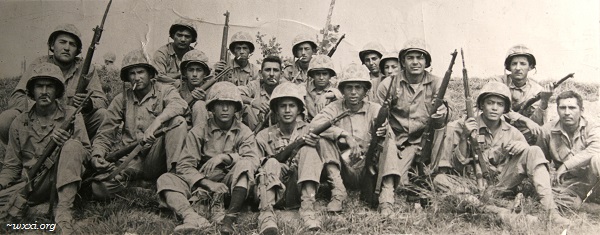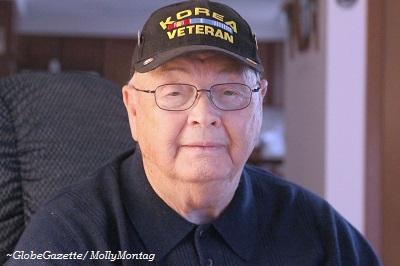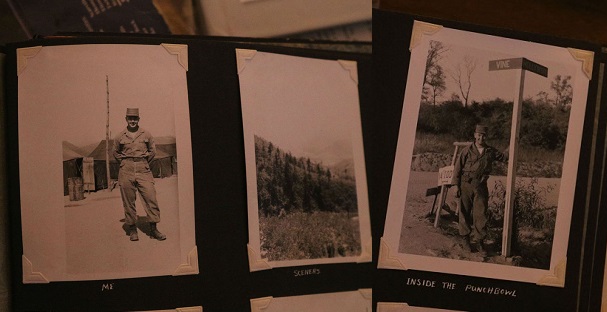


Cerro Gordo County Iowa
Part of the IAGenWeb Project
|
The Globe-Gazette
 MASON CITY — A plaque in the lobby of the Cerro Gordo County Courthouse honors the men and women from the county who have given their lives in military service. Eighteen names are enshrined from the Korean War — 13 from Mason City, three from Plymouth, one from Rockwell and one from Clear Lake. Nearly 34,000 troops died in battle. Almost 20,000 died of other causes. More than 100,000 were wounded and 8,000 were declared missing in action. And yet, it has often been called “the forgotten war,” the one that occurred between World War II and Vietnam.
by Molly Montag, Tuesday, November 29, 2016

“I could either be on the guns or I could be a cook,” said Hanson, 86. “And, a guy told me, ‘Don’t even think about it. Be a cook.’ “So there I was. I was a cook.” The Rake High School graduate spent about a year in eastern Korea with the 196th Field Artillery Battalion in a valley dubbed the Punchbowl. He arrived in Korea by boat after training at Fort Crowder, Missouri; Fort Hood, Texas; and Fort Chaffee, Arkansas. The rest of the journey was by land. “We went by train as far as it would go and then we went by truck to the Punchbowl, so that was kind of scary because if we would’ve been cut off ... ,” Hanson said, trailing off. By the time Hanson got there in January 1953, the American and opposing forces were entrenched on the mountainous ridges. “We were on the top on this side, and the enemy was on top on the other side,” Hanson explained. “It was 8-10 miles across, that bowl, and we were there the whole time, but we was below the ground.” Soldiers slept below the ground in order to protect them from incoming rounds. The mess hall, where Hanson worked, was one of the only above-ground structures. Soldiers covered its tin roof with dirt and grass to camouflage it from attack. Even then, it wasn’t safe. “You wouldn’t dare go walk up there behind the mess hall,” Hanson said. “It’d be all booby trapped.” Heavy fighting had turned the Punchbowl into a desolate place.
 “There had been so many rounds that there wasn’t much,” he said. “The trees were just about non-existent. They were just little bushes.” Cooks worked three days on, three days off. He wrote home nearly every day. “We’d get up early, about 6 o’clock. I think we had to begin to serve breakfast about 7 o’clock,” he said. “Then, we’d be done by 12 o’clock, but by the time we had to clean up it’d be 1 o’clock.” The soldiers liked some of the food. Some dishes weren’t big hits. “They had chicken noodle soup, that was the best,” Hanson said. “And, they had green pea soup, which nobody liked. I wouldn’t eat it now.” Hanson was there less than a year. “The fighting stopped Aug. 31. And, then we stayed in the same position until I went home the end of September,” he said. “So I was there just 11 months, 19 days and two hours.” These days, Hanson doesn’t think about Korea very much. “As long as I didn’t get hurt, and nobody right next to me got hurt or anything, why then I really don’t think about it,” he said. “Now, it’d be different I think if I would’ve been hurt or if my buddies, friends, got hurt, but it didn’t happen. “I was very lucky that way.”
Photographs courtesy of Globe-Gazette
|
<